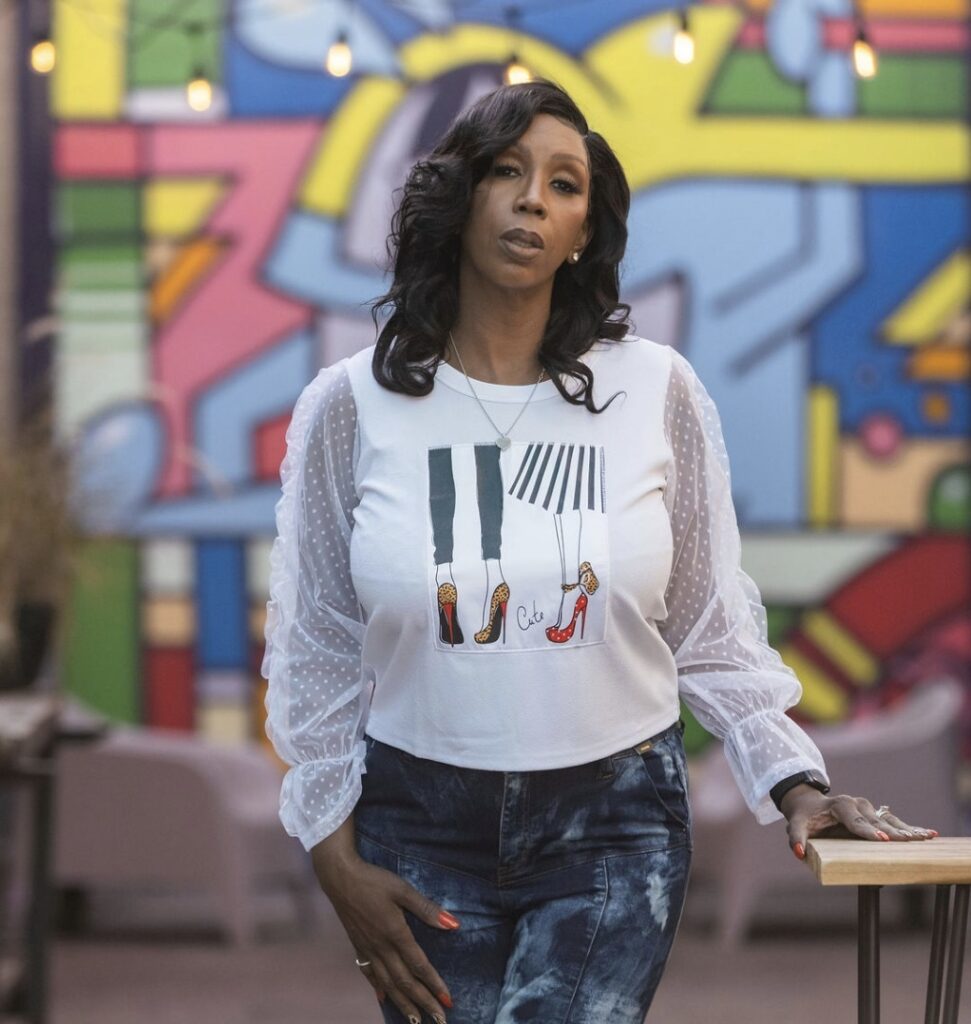DJ Minx started DJing in Detroit more than 30 years ago. Her recent breakthrough wouldn’t have been possible if not for her undying creative passion.
On the evening of May 18, DJ Minx played two sets at EDC Las Vegas 2024. The following weekend, she touched down in her hometown to grace the decks at Movement Detroit’s Waterfront Stage for the festival’s latest edition.
The audiences were different — and while her song selection was as well, the Motor City house and techno queen made it a point to keep the overall essence of her sound consistent between each appearance.
“With me being a Detroit originator and playing the way I do, I flow with that wherever I go,” she told me at Hart Plaza ahead of her Movement set. “So the younger crowd at EDC, or whoever else, becomes familiar with what Detroit is about because of the way I play. I don’t typically change my style. I just flow away.”
That’s not to say she takes the responsibility of representing Detroit dance music lightly. Far from it. Especially during a homecoming as momentous as Movement Detroit, she takes it upon herself to pay homage to the past, present, and future of Motor City dance music.
“I make sure that I focus on the artists in Detroit, definitely sprinkle them in there,” she said. “Or I get to play Detroit classics, things that I listened to when I initially started DJing that keep me going and got me to where I am today.”
It might surprise you to learn just how long ago DJ Minx (real name Jennifer Witcher) actually started. In the late ‘80s, she got involved with the Music Institute, which the late writer Dan Sicko famously credited for “solidifying Detroit’s techno scene of the time, giving artists a place to exercise their DJ skills and play their records without jetting across the Atlantic to the United Kingdom” in his 1999 book Techno Rebels.
While first-wave Detroit techno acts like Eddie Fowlkes and Blake Baxter rose to prominence, however, Witcher’s career arc reached its inflection point much later. A post-pandemic breakthrough act, it’s truly a wonder she remained as dedicated to her craft as she did.
“It was rough in the days of me DJing while I was working nine to five at General Motors Headquarters right there,” she says while pointing at the historic skyscraper upstream from Hart Plaza on the Detroit River. “The love of the music is basically what kept me rolling to where I am today. I didn’t expect that things would change, I just expected them to be the same way they were.”
No matter how long I did music before the pandemic, my career stayed on even pavement, and nothing ever shifted or changed until later on. So then, when it started to change and people started noticing me more, that gave me the energy to take it to the next level, with production, getting more out there, and leaving my job.
DJ Minx
Witcher publicly came out as queer in 2021, an option that she recently told QSaltLake Magazine was hardly available in Detroit’s social climate 30 years ago. When I asked her if she has received any pushback for her sexuality from fellow Detroiters in recent years, she answered with a firm “No.”
“I mean, there could be people who are against it, but I have not experienced any issues with it at all,” she said. “This is love, because I’m a person just like the next one, right?”

Nor has that complicated history overshadowed Witcher’s fondness for Detroit electronic music’s nascent years, as evidenced by her wildly successful February single, “Taking it Back.” In addition to the eclectic sound design that has become a DJ Minx calling card, it includes her own spoken-word vocal romanticizing the bygone era of techno and house.
“I wrote the vocal as I was producing the track because the style of music and all those elements reminded me of the old school days,” she said. “And I know back in the day — like at the Music Institute, which is the place I knew originally — they played all kinds of music.”
And while Witcher’s career took longer than those of some of her contemporaries to gain momentum, she’s still gotten her flowers as an originator. At the past few editions of Movement Detroit, festival organizer Paxahau has partnered with Resident Advisor and Wajeed’s Underground Music Academy on an exhibit behind the Underground Stage called “Respect the Architects.” In it, a photo and bio for DJ Minx features prominently alongside Detroit electronic music innovators like Delano Smith, Stacey “Hotwaxx” Hale, Todd Johnson, and the late K-Hand.
That legacy alone doesn’t define Witcher, though. At her current trajectory, she’s most excited by the future.
Now that DJ Minx’s June 15 gathering at Detroit’s Spot Lite called Queendom — A Detroit Pride Party is behind her, she’s more focused on the recording front. She says fans can look forward to new music on different labels. If her body of work as a DJ and producer is any indication, it will be authentically and unapologetically her.
Follow DJ Minx:
Facebook | X | Instagram | SoundCloud | Twitch








